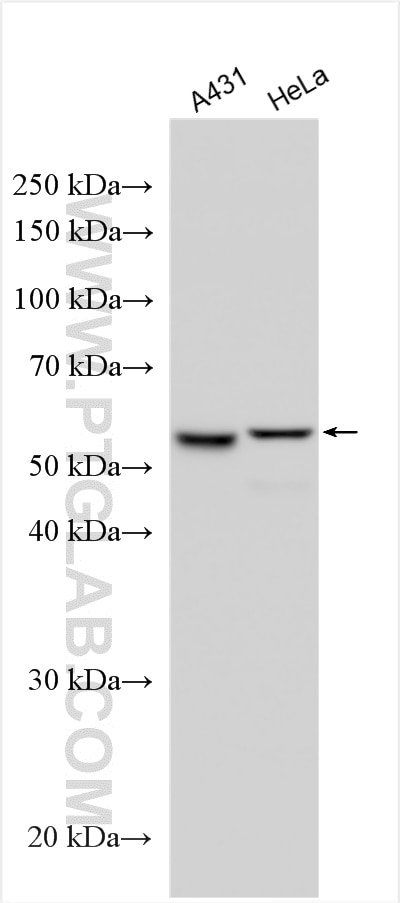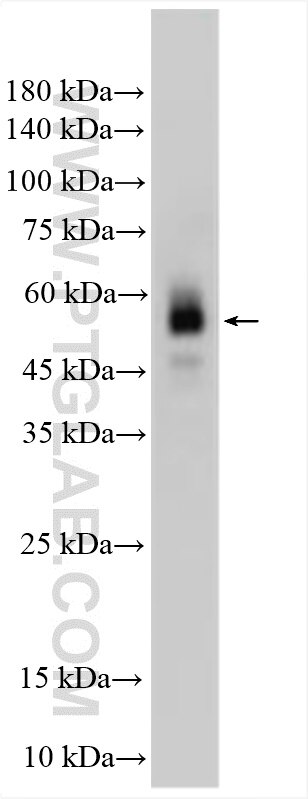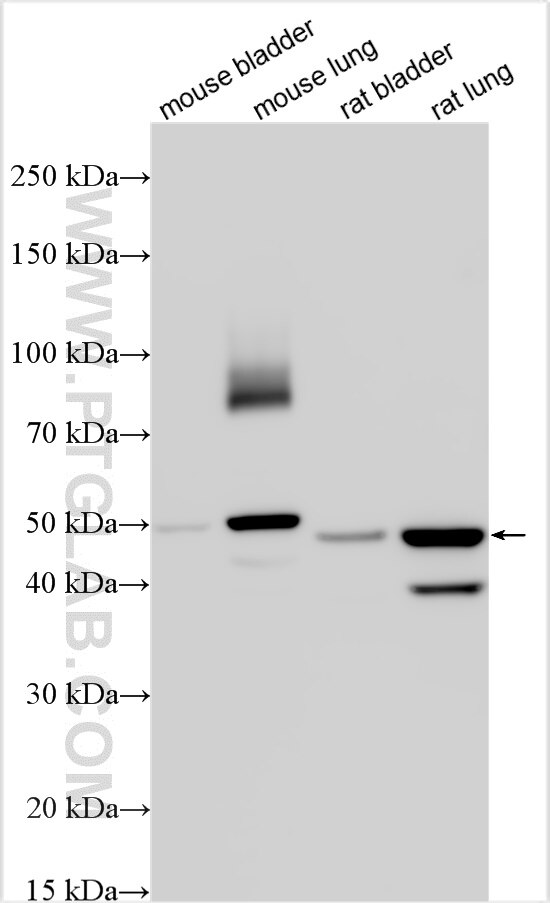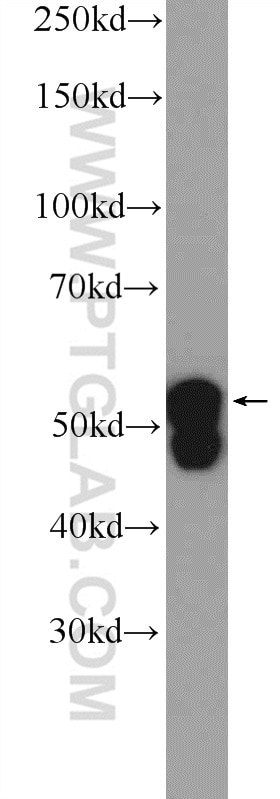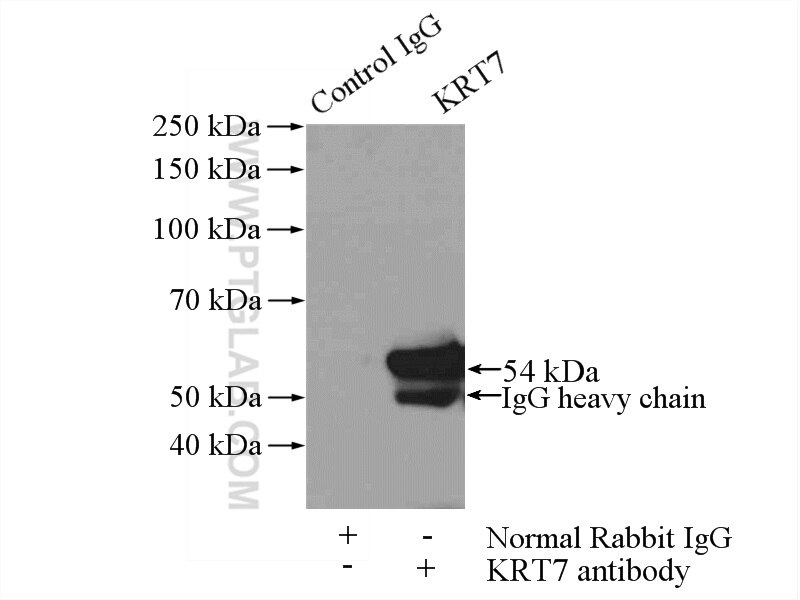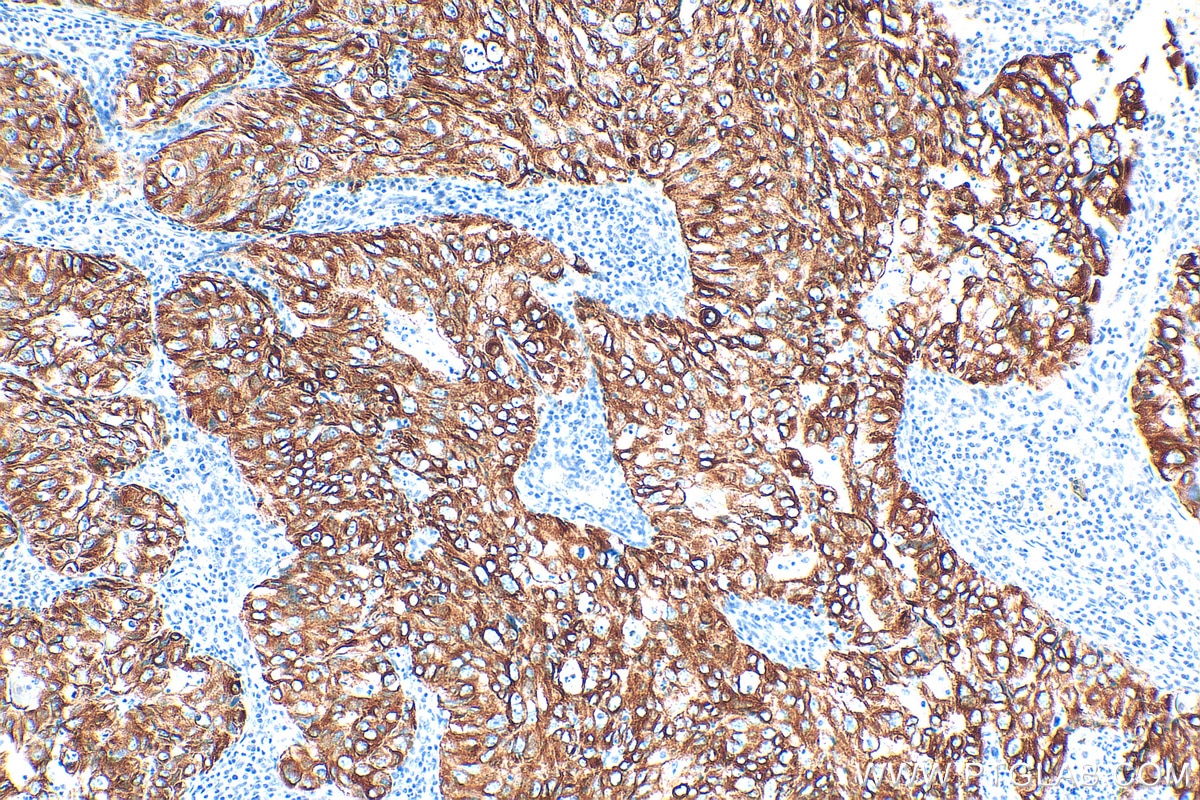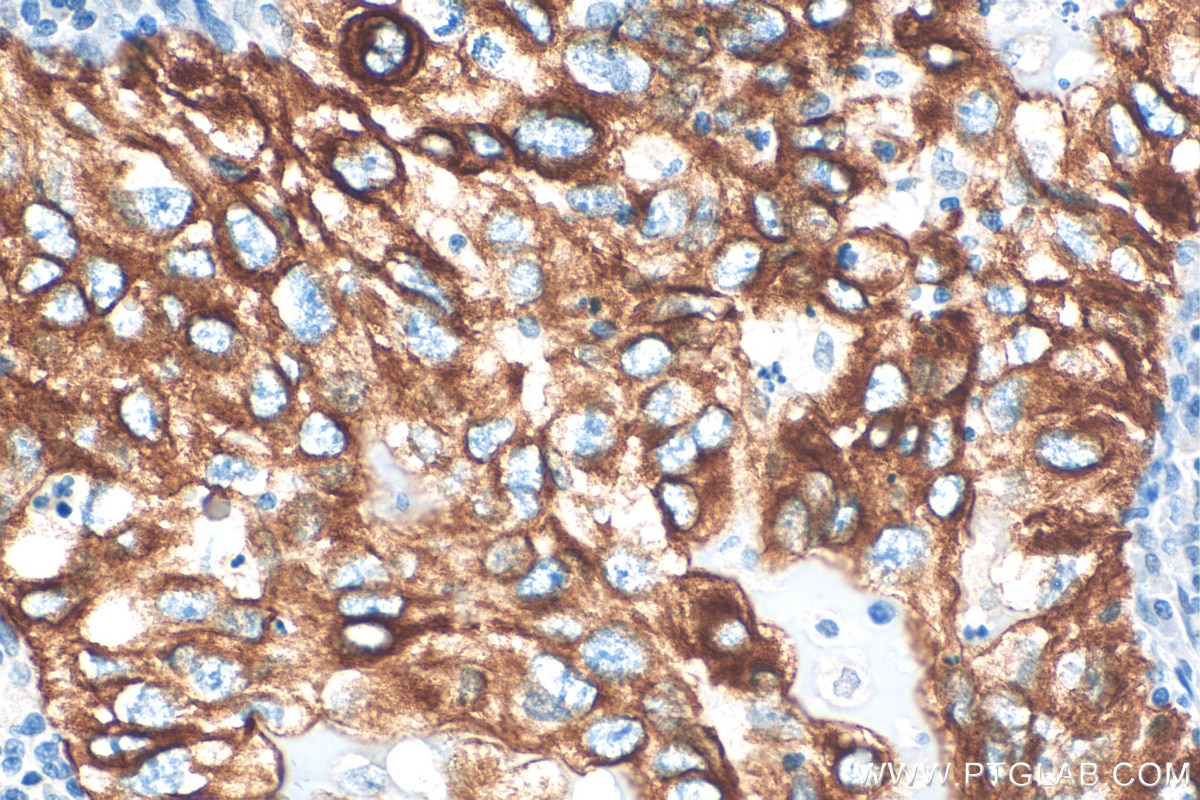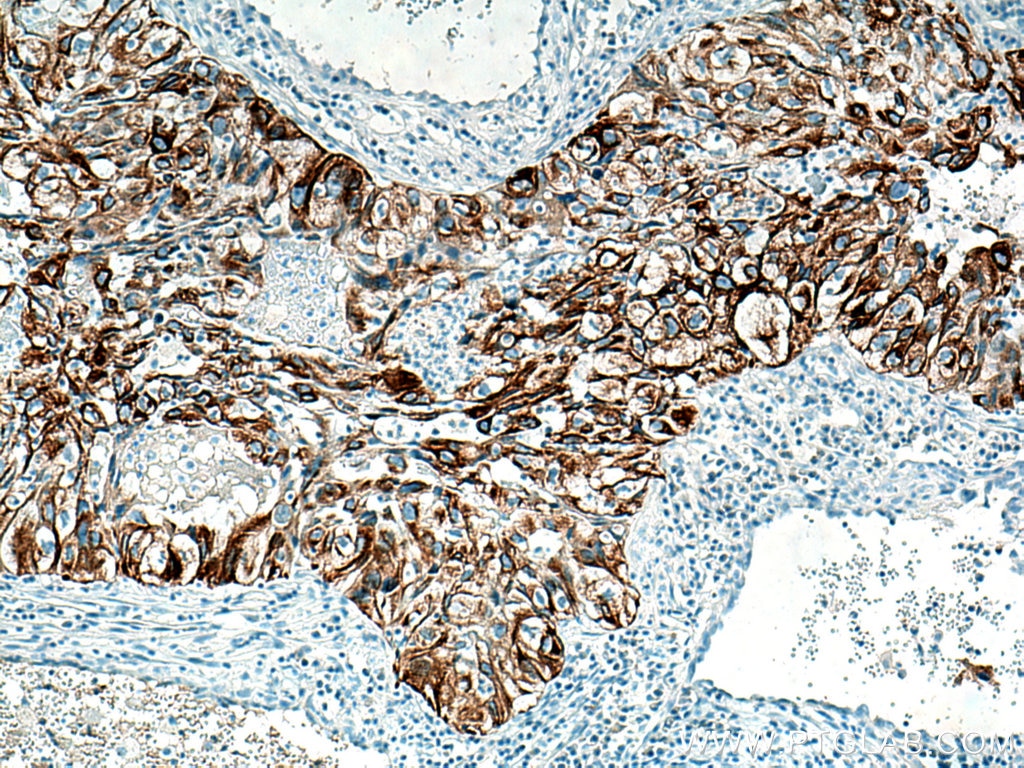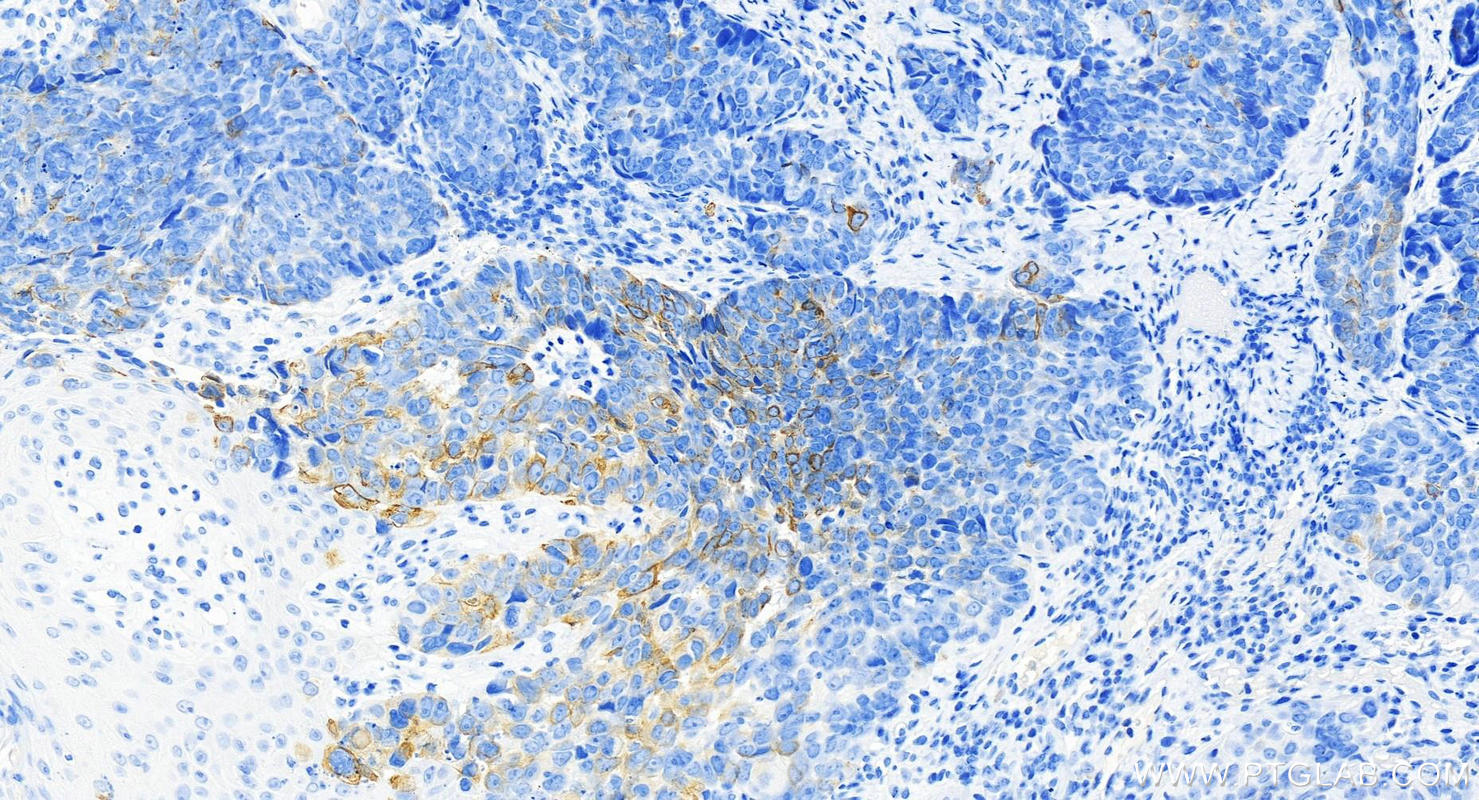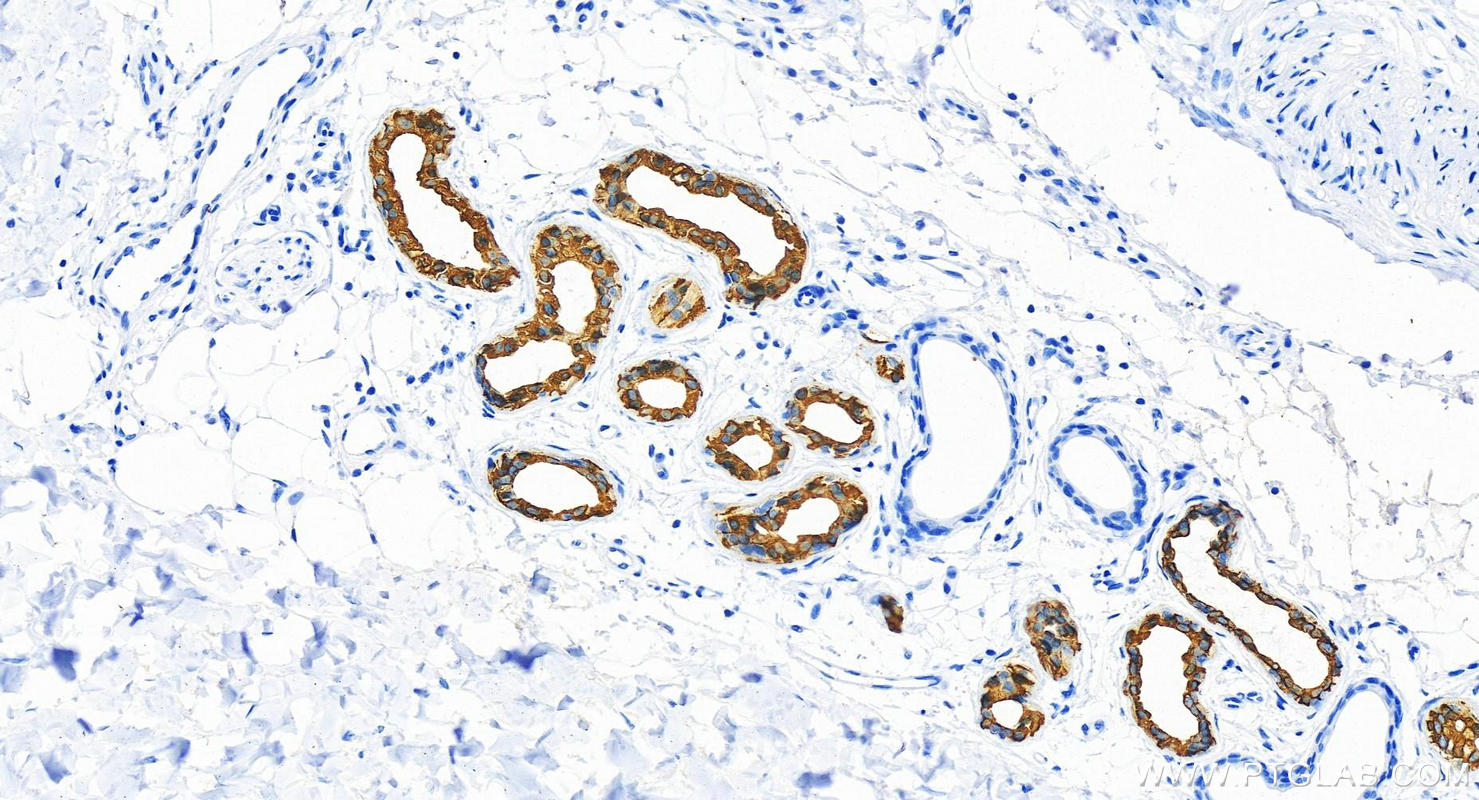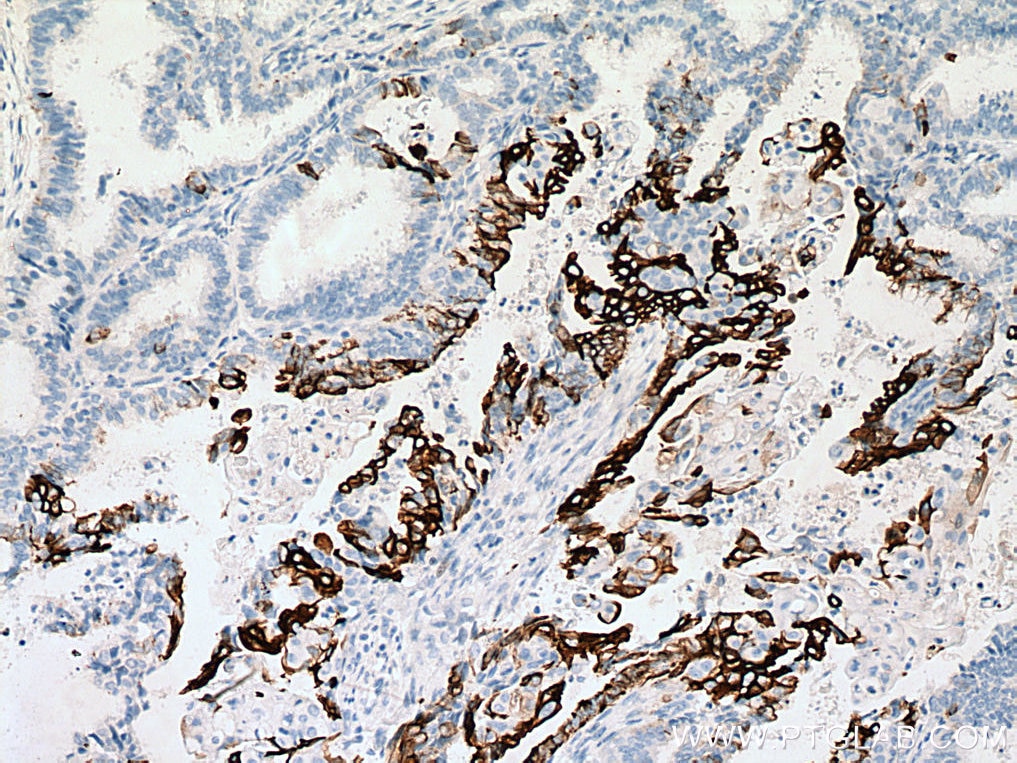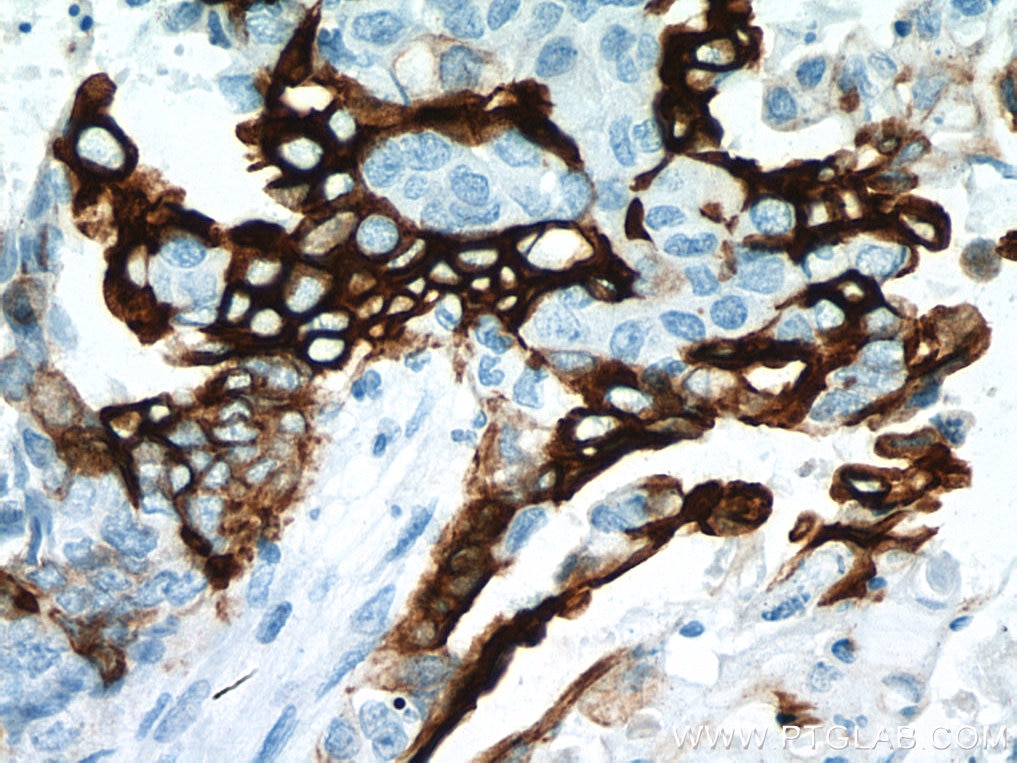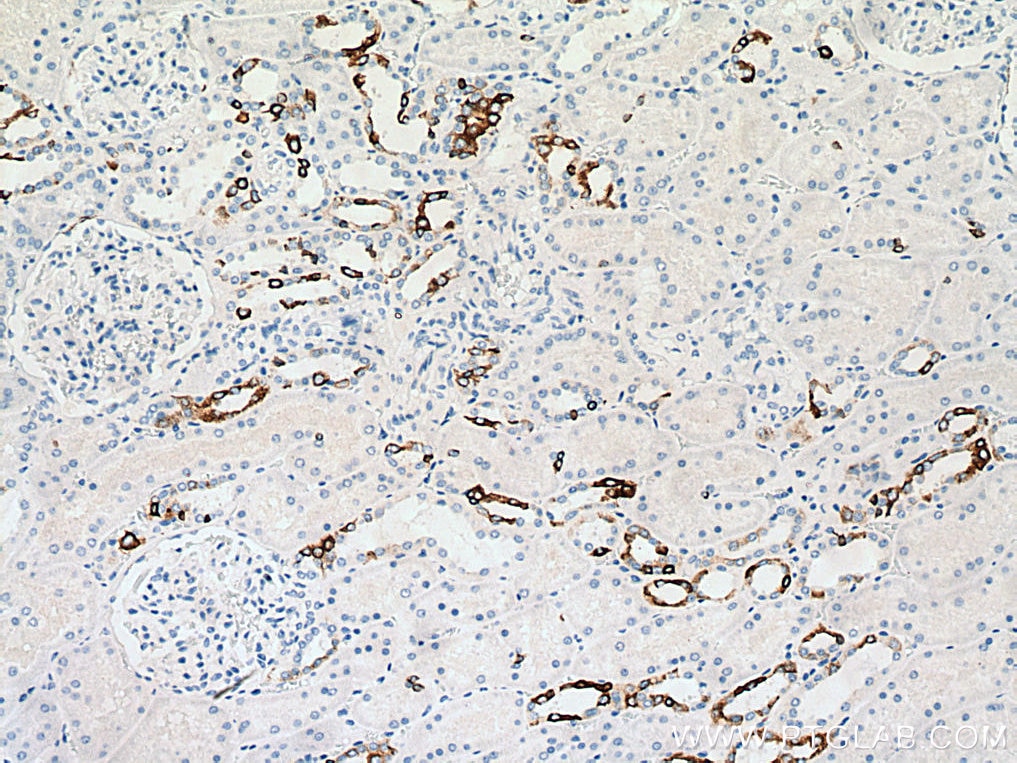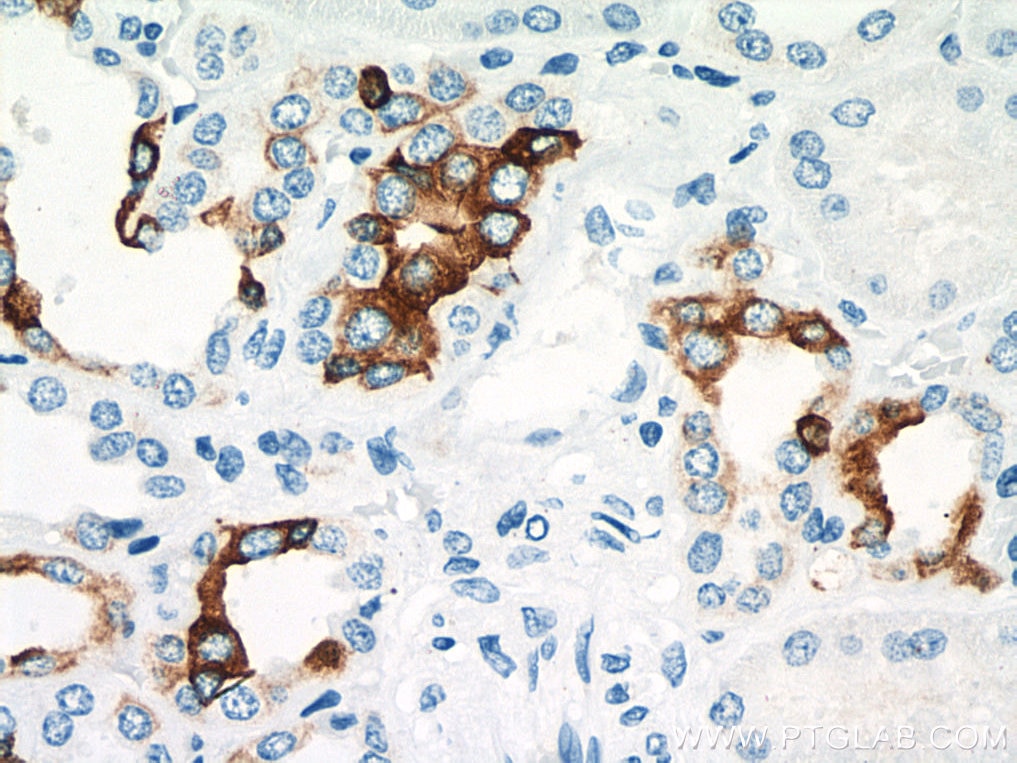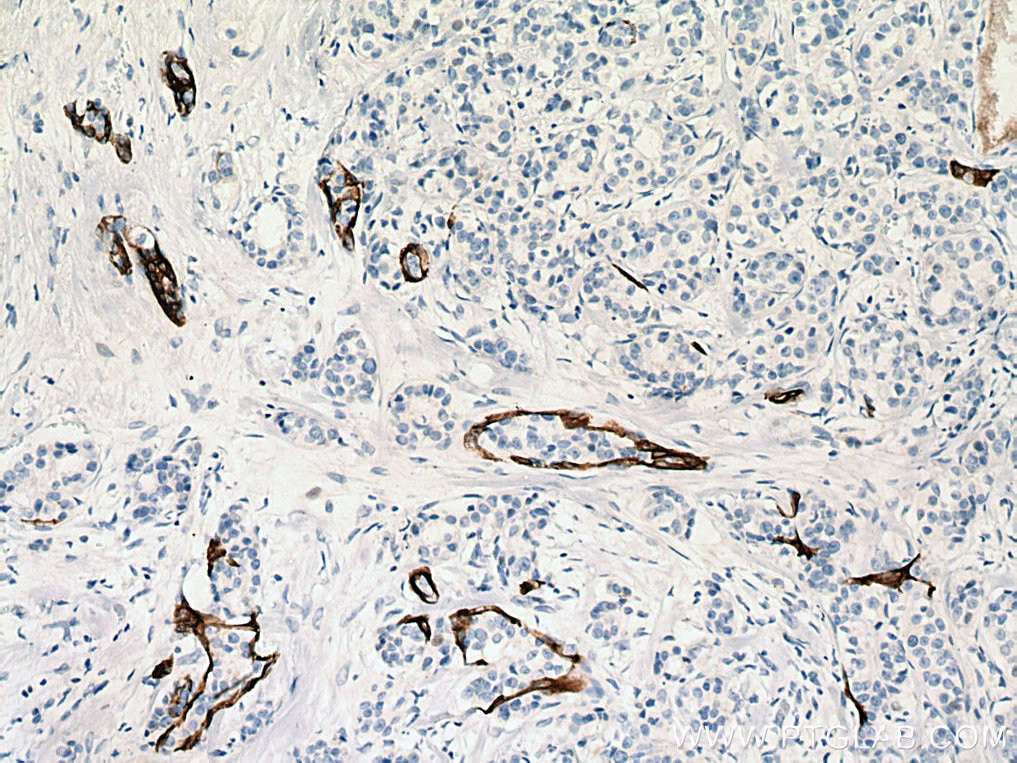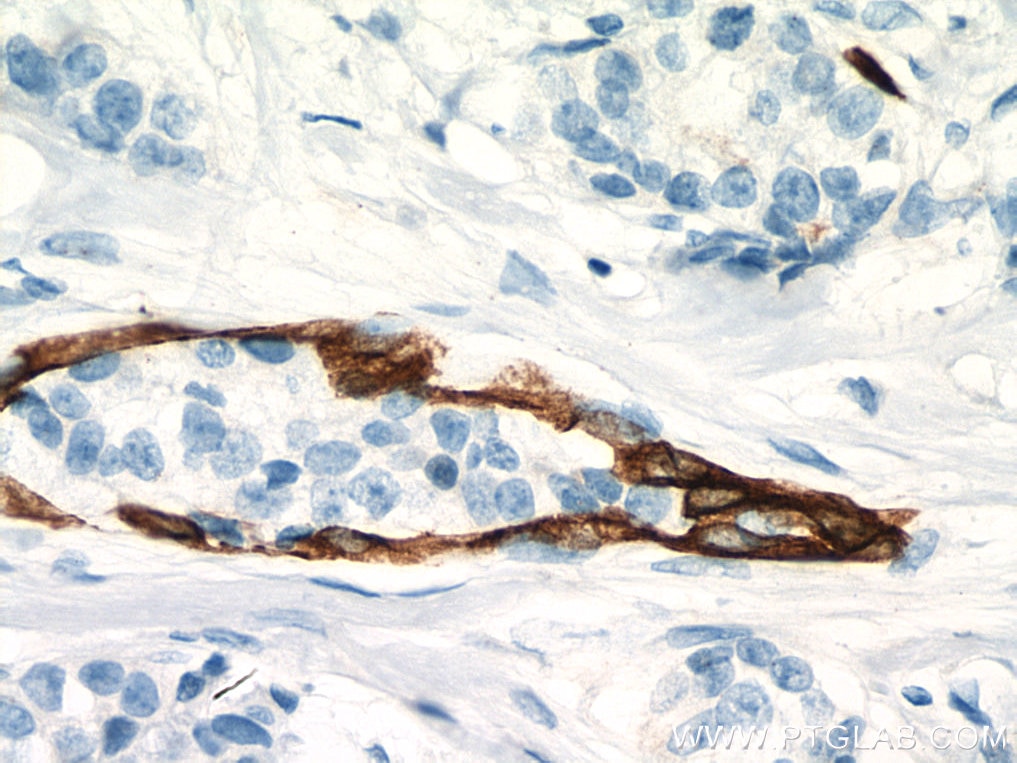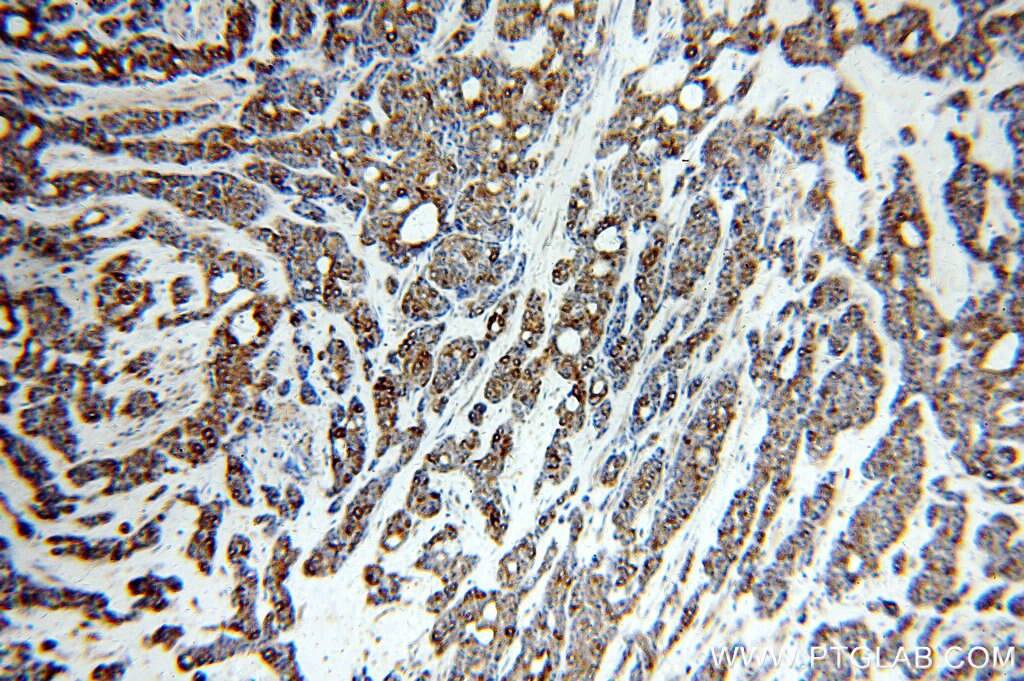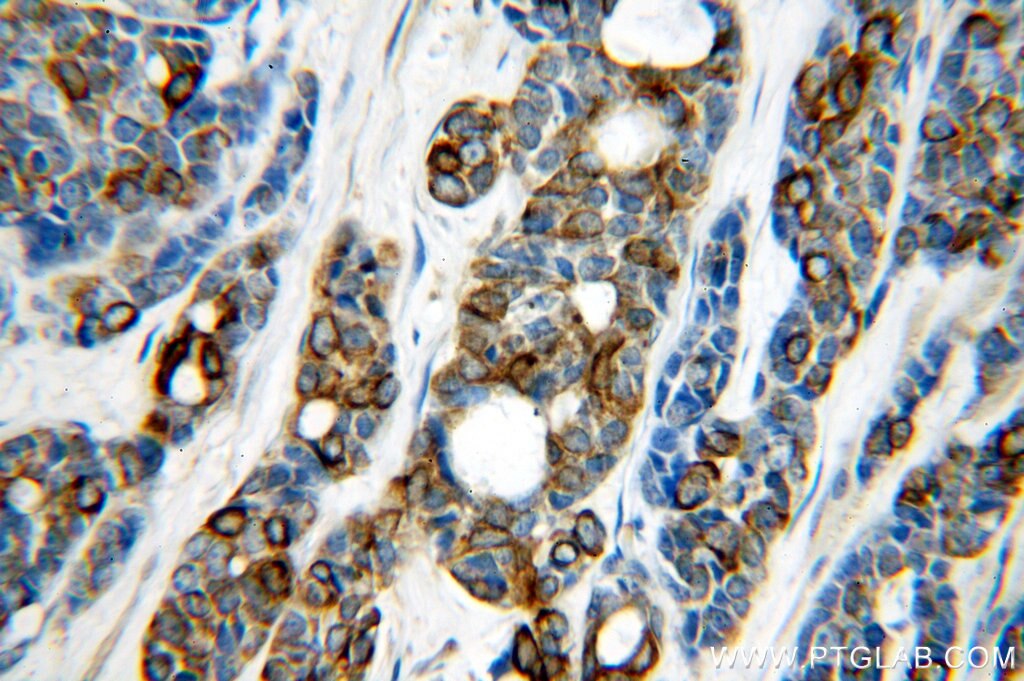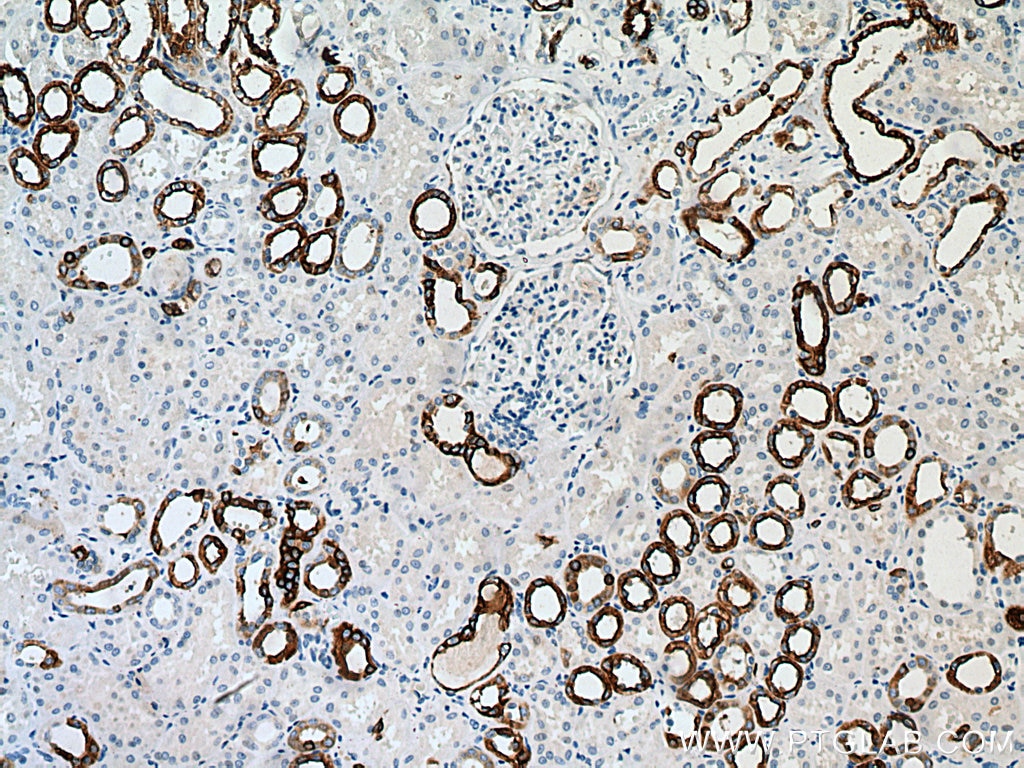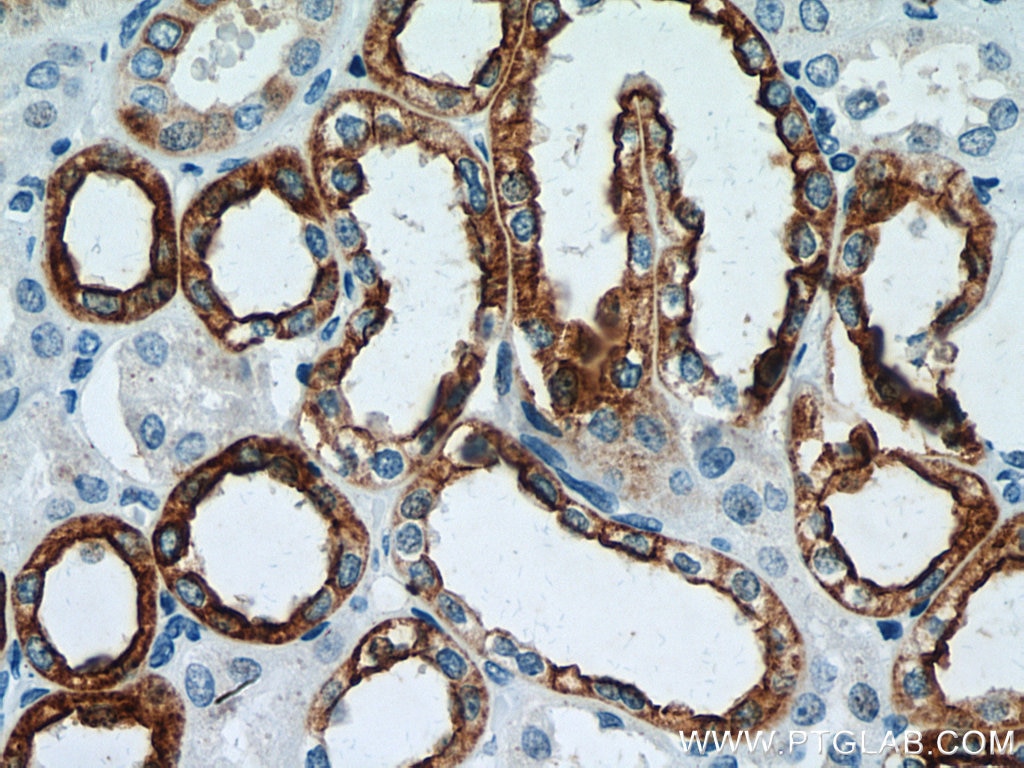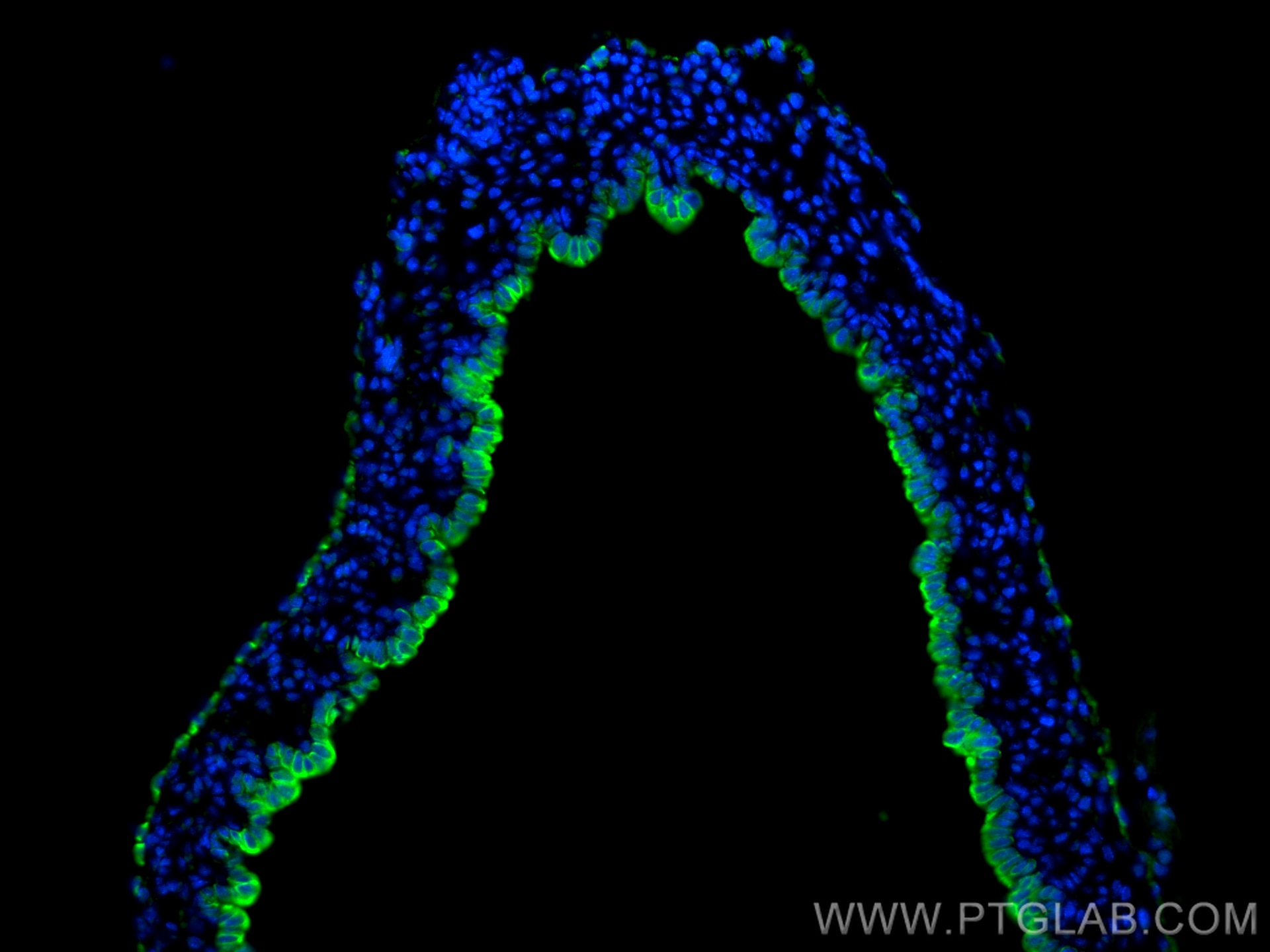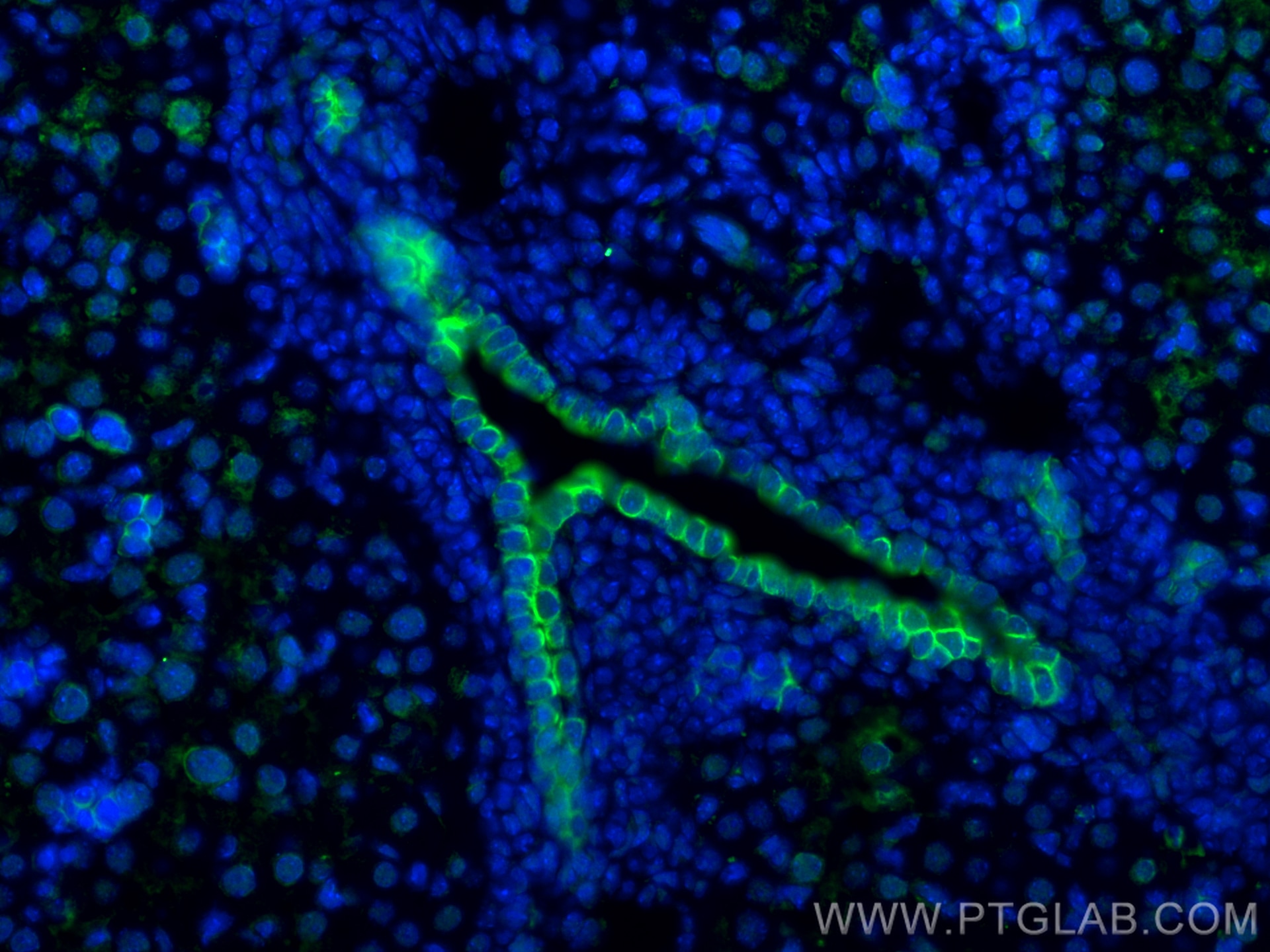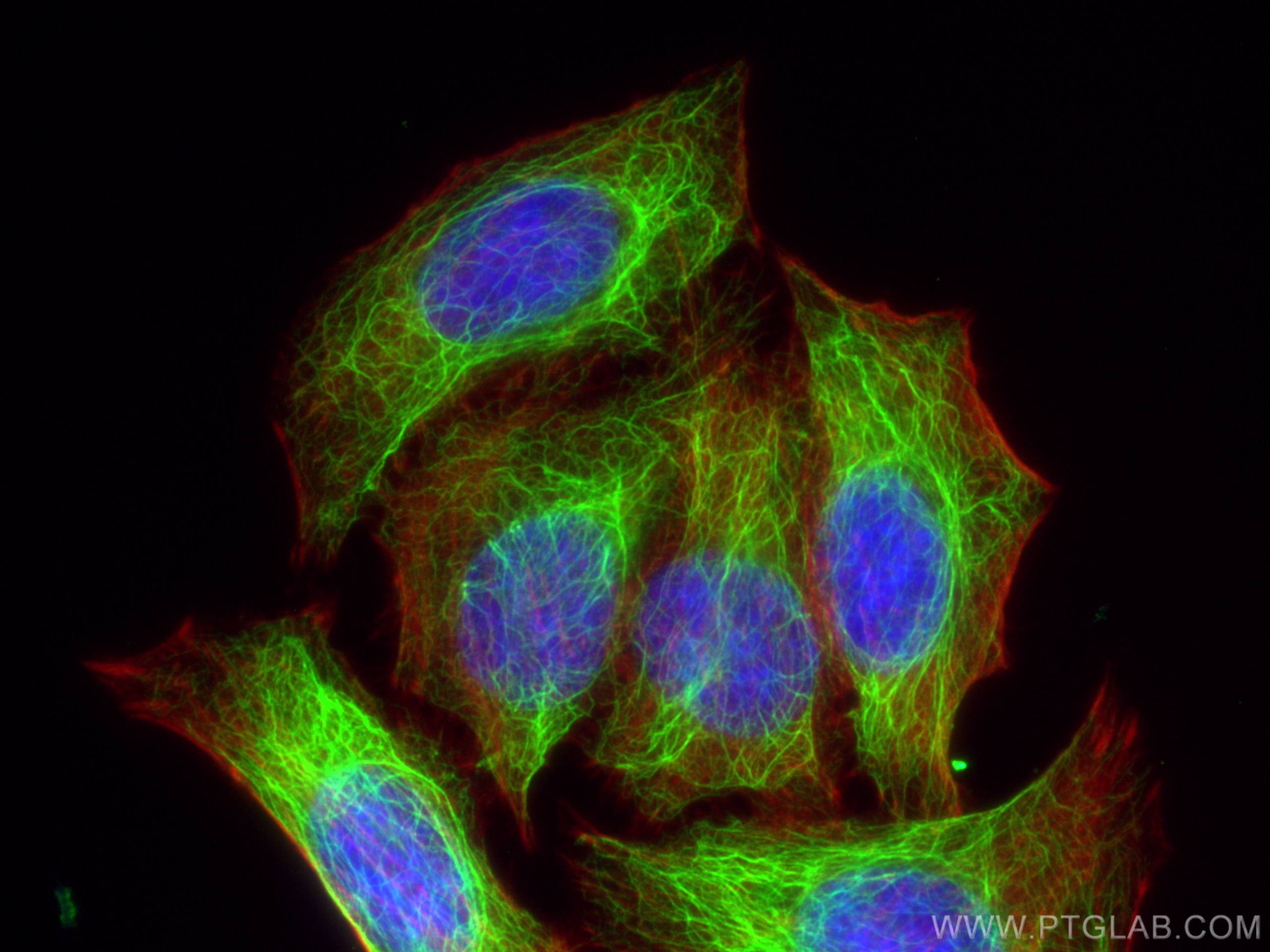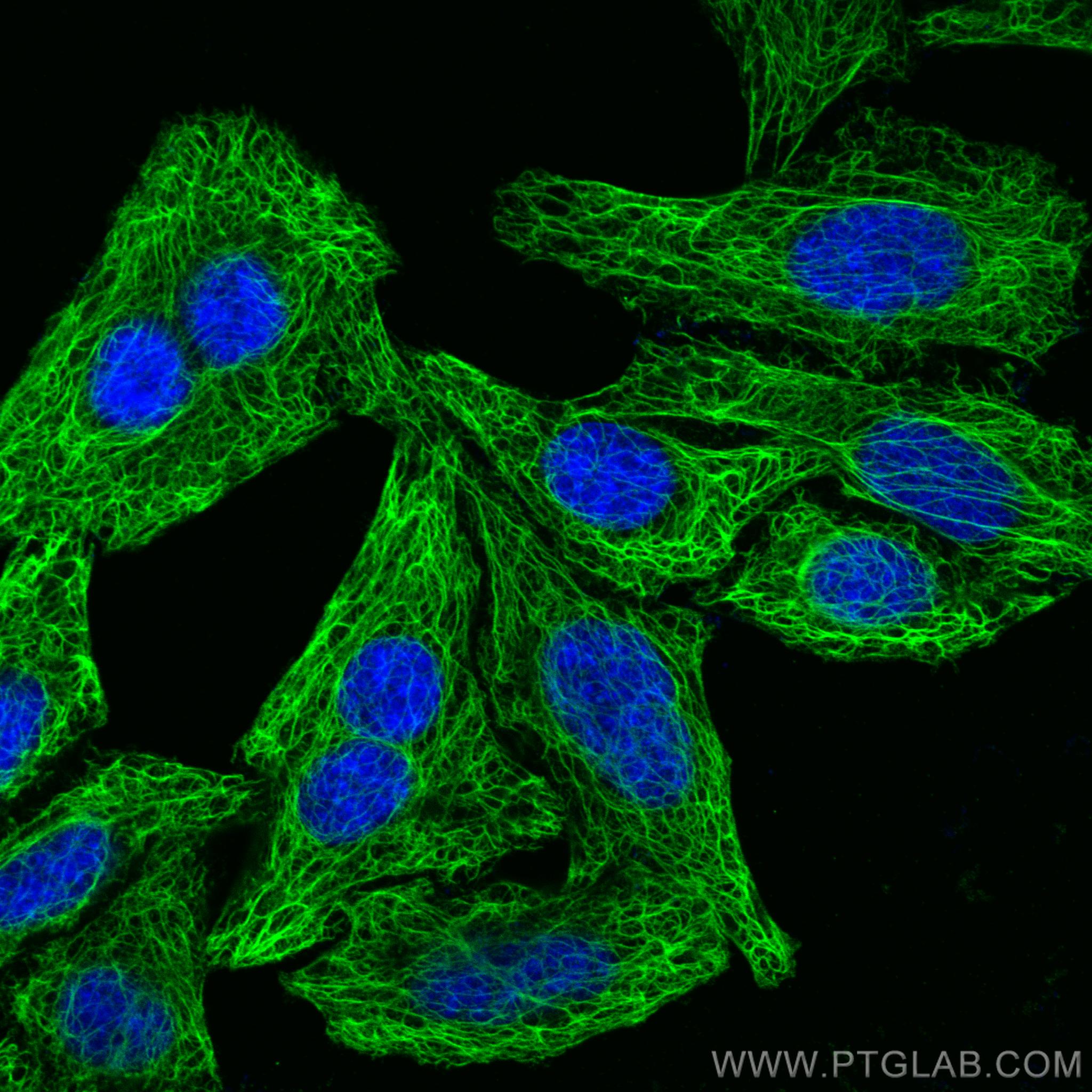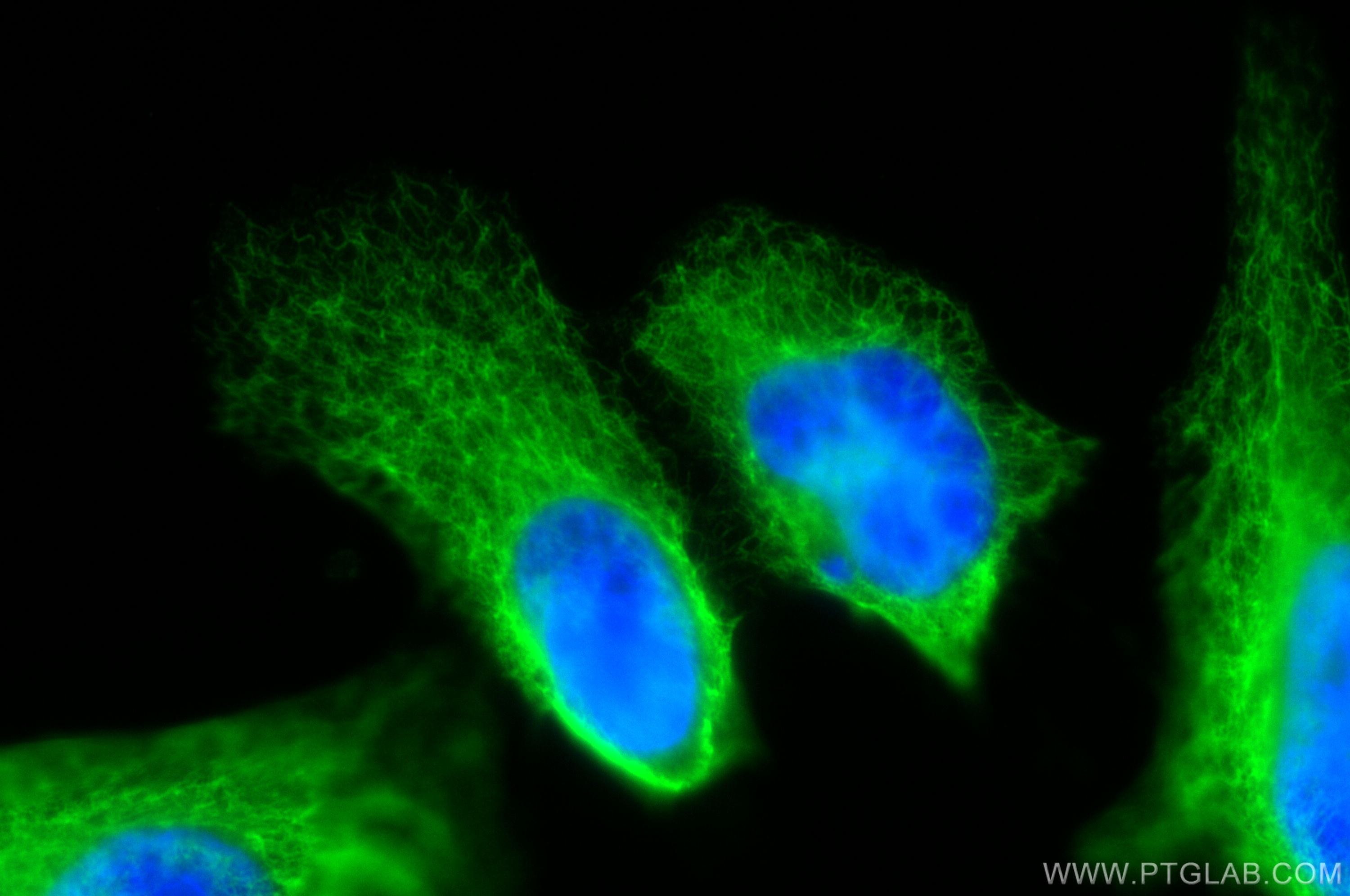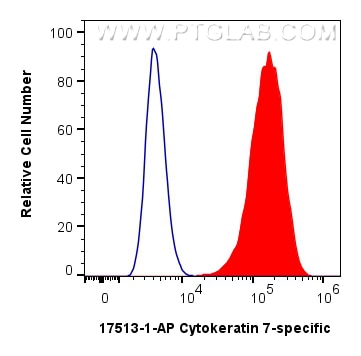Tested Applications
| Positive WB detected in | A431 cells, HeLa cells, T-47D cells, mouse bladder tissue, mouse lung tissue, rat bladder tissue, rat lung tissue |
| Positive IP detected in | HepG2 cells |
| Positive IHC detected in | human lung cancer tissue, human bowen disease, human breast cancer tissue, human cervical cancer tissue, human kidney tissue, human ovary tumor tissue Note: suggested antigen retrieval with TE buffer pH 9.0; (*) Alternatively, antigen retrieval may be performed with citrate buffer pH 6.0 |
| Positive IF-P detected in | mouse liver tissue |
| Positive IF/ICC detected in | HeLa cells, HepG2 cells |
| Positive FC (Intra) detected in | HeLa cells |
Recommended dilution
| Application | Dilution |
|---|---|
| Western Blot (WB) | WB : 1:10000-1:50000 |
| Immunoprecipitation (IP) | IP : 0.5-4.0 ug for 1.0-3.0 mg of total protein lysate |
| Immunohistochemistry (IHC) | IHC : 1:1000-1:4000 |
| Immunofluorescence (IF)-P | IF-P : 1:200-1:800 |
| Immunofluorescence (IF)/ICC | IF/ICC : 1:50-1:500 |
| Flow Cytometry (FC) (INTRA) | FC (INTRA) : 0.25 ug per 10^6 cells in a 100 µl suspension |
| It is recommended that this reagent should be titrated in each testing system to obtain optimal results. | |
| Sample-dependent, Check data in validation data gallery. | |
Published Applications
| KD/KO | See 1 publications below |
| WB | See 6 publications below |
| IHC | See 31 publications below |
| IF | See 28 publications below |
Product Information
17513-1-AP targets Cytokeratin 7-specific in WB, IHC, IF/ICC, IF-P, FC (Intra), IP, ELISA applications and shows reactivity with human, mouse, rat samples.
| Tested Reactivity | human, mouse, rat |
| Cited Reactivity | human, mouse, rat, bovine |
| Host / Isotype | Rabbit / IgG |
| Class | Polyclonal |
| Type | Antibody |
| Immunogen |
Peptide Predict reactive species |
| Full Name | keratin 7 |
| Calculated Molecular Weight | 51 kDa |
| Observed Molecular Weight | 51 kDa |
| GenBank Accession Number | NM_005556 |
| Gene Symbol | Cytokeratin 7 |
| Gene ID (NCBI) | 3855 |
| RRID | AB_2134468 |
| Conjugate | Unconjugated |
| Form | Liquid |
| Purification Method | Antigen affinity purification |
| UNIPROT ID | P08729 |
| Storage Buffer | PBS with 0.02% sodium azide and 50% glycerol, pH 7.3. |
| Storage Conditions | Store at -20°C. Stable for one year after shipment. Aliquoting is unnecessary for -20oC storage. 20ul sizes contain 0.1% BSA. |
Background Information
Keratins are a large family of proteins that form the intermediate filament cytoskeleton of epithelial cells, which are classified into two major sequence types. Type I keratins are a group of acidic intermediate filament proteins, including K9-K23, and the hair keratins Ha1-Ha8. Type II keratins are the basic or neutral courterparts to the acidic type I keratins, including K1-K8, and the hair keratins, Hb1-Hb6. KRT7 is a type II keratin. It is specifically expressed in the simple epithelia lining the cavities of the internal organs and in the gland ducts and blood vessels. This antibody is specifically against KRT7.
Protocols
| Product Specific Protocols | |
|---|---|
| FC protocol for Cytokeratin 7-specific antibody 17513-1-AP | Download protocol |
| IF protocol for Cytokeratin 7-specific antibody 17513-1-AP | Download protocol |
| IHC protocol for Cytokeratin 7-specific antibody 17513-1-AP | Download protocol |
| IP protocol for Cytokeratin 7-specific antibody 17513-1-AP | Download protocol |
| WB protocol for Cytokeratin 7-specific antibody 17513-1-AP | Download protocol |
| Standard Protocols | |
|---|---|
| Click here to view our Standard Protocols |
Publications
| Species | Application | Title |
|---|---|---|
Transl Res SERPINA5 may promote the development of preeclampsia by disruption of the uPA/uPAR pathway. | ||
Clin Cancer Res Integrative Genomic Analysis of Gemcitabine Resistance in Pancreatic Cancer by Patient-derived Xenograft Models. | ||
Angiogenesis A novel lymphatic pattern promotes metastasis of cervical cancer in a hypoxic tumour-associated macrophage-dependent manner. | ||
Proc Natl Acad Sci U S A Up-regulation of CD81 inhibits cytotrophoblast invasion and mediates maternal endothelial cell dysfunction in preeclampsia. | ||
Cell Death Dis METTL14 contributes to acute lung injury by stabilizing NLRP3 expression in an IGF2BP2-dependent manner | ||
Cell Prolif Insufficient GDF15 expression predisposes women to unexplained recurrent pregnancy loss by impairing extravillous trophoblast invasion |

